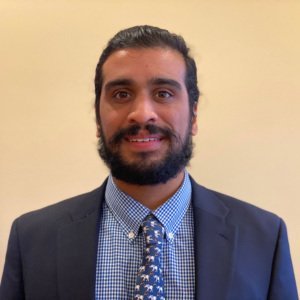By Ameil Kenkare, a 2021 Equal Justice Works Fellow in the sponsored by AbbVie Inc. and Kirkland & Ellis. Ameil is hosted by the Chicago Lawyers’ Committee for Civil Rights.
Prior to attending law school, I taught at a public charter high school in Chicago for four years. There, I worked with students across all grade levels: I taught U.S. history, co-advised a cohort from freshman through senior year, and coached the boys’ soccer team. As a teacher, I witnessed moments of curiosity, achievement, and joy that will stay with me for a long time. I also witnessed and took part in systems of punishment and oppression that cut my homeroom group of two dozen freshmen in half by their graduation, created perverse incentive structures, and placed even the ‘non-disciplined’ students in constant states of anxiety and discomfort. Under the guise of ‘high expectations,’ explicit and tacit exclusions of students who did not conform to gendered, racialized, and paternalistic expectations formed an undercurrent of fear and anxiety in the school, with the remaining kids wondering who was next.
My Equal Justice Works Fellowship project combats exclusionary discipline practices in education through direct representation in expulsion defenses and through collaboration with grassroots organizations that advocate against the school-to-prison pipeline. Two factors animate my work: my aforementioned experience in a school system that practiced exclusionary disciplinary policies, and my desire to change policy around systemic racism.
I know that not all schools are organized with such carceral rules. Schools with resources do not turn to exclusionary discipline as a first resort—students are allowed to learn and grow from their mistakes in material-rich environments. The high school I attended was like this. Schools with silent hallways and belt checks emerge from deeply segregated systems, where Black and Brown students, disproportionately from under-resourced and intentionally-disadvantaged neighborhoods, have already been separated out to places that receive specifically punitive treatment as a rule. These practices come from policy effectuated against Black and Brown people at the institutional level, policies that directly impact Brown and Black children in their daily lives at school.
Data and academic research demonstrate that high school students who are suspended are more than twice as likely to become involved in the criminal legal system. With expulsions, students removed from their learning environments can move even more quickly towards systems of youth and adult incarceration. While the excluded students have the most to lose in the literal sense, their former classmates, hallways, and communities can feel disruption from even a single student’s absence. Many of the students I work with first and foremost miss their friends, and their friends also suffer the consequences of ‘zero tolerance’ policies, overreactions, and racist discipline philosophies.
My Fellowship is one of many efforts to both reduce the harm of exclusionary school discipline and locate and address the source policies causing it. Along with others who are working to improve school policies, I represent students who are unfairly and improperly excluded from their home schools and identify patterns of exclusion that center on specific laws, loopholes, and indiscretions. I attend discipline hearings, negotiate, and engage in formal and informal legal advocacy to directly address client needs.
Like all lawyers, my central goal is to ensure the best possible outcome for my clients. It is often not as simple as making sure that a student who has been expelled, or who could be expelled, returns to that school. As a core principle, I do not apply prescriptive approaches to complex needs and situations, and instead listen to my clients, community partners, and people being disserved to shape and guide our advocacy. This means working with each student and the important adults in their life to determine what continuing their education and achieving their goals looks like.
I am very grateful to be starting my legal career with an Equal Justice Works Fellowship, and specifically to be working at Chicago Lawyers’ Committee for Civil Rights. In this role, I can reflect openly on lawyering and its relationship with education equity, what it means to support students and their families, and the extent to which the privilege of the profession can cause a school district to do what it should have done from the beginning.
I hope to continue the work of advocating with Black and Brown families disproportionately impacted by excessive discipline practices for the rest of my career. All students should have the right to decide and fulfill their potential. I want to grow long-term bonds of trust with community partners and work together to end discriminatory policies for all students, especially for the kids most negatively impacted by exclusionary discipline.
To learn more about Ameil’s project, visit his profile.

